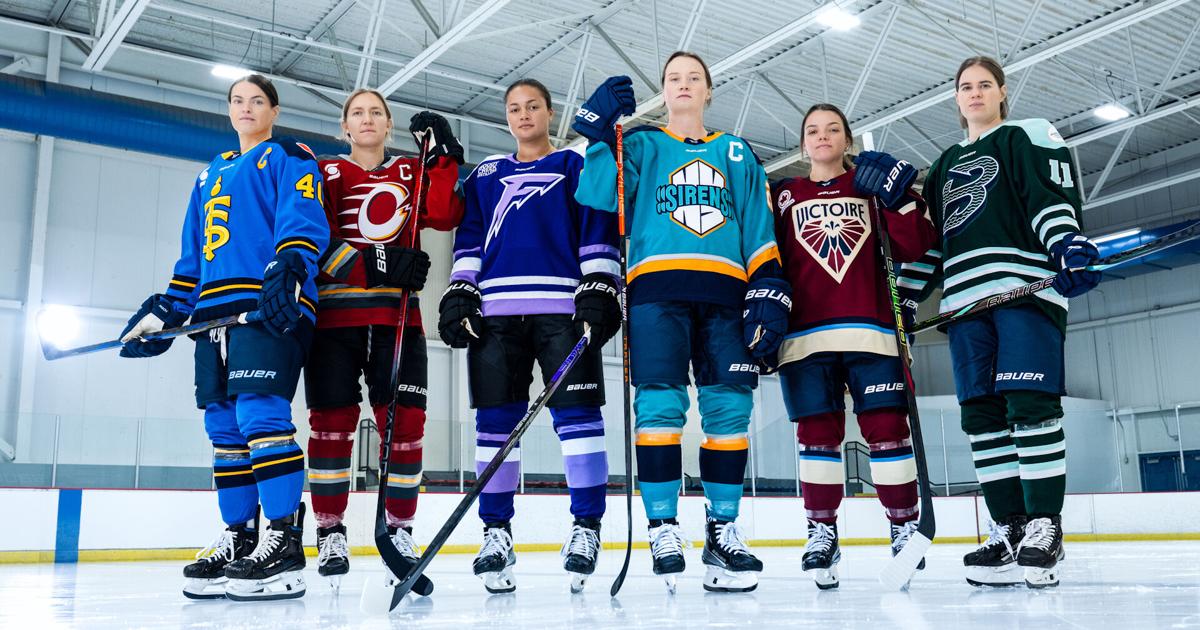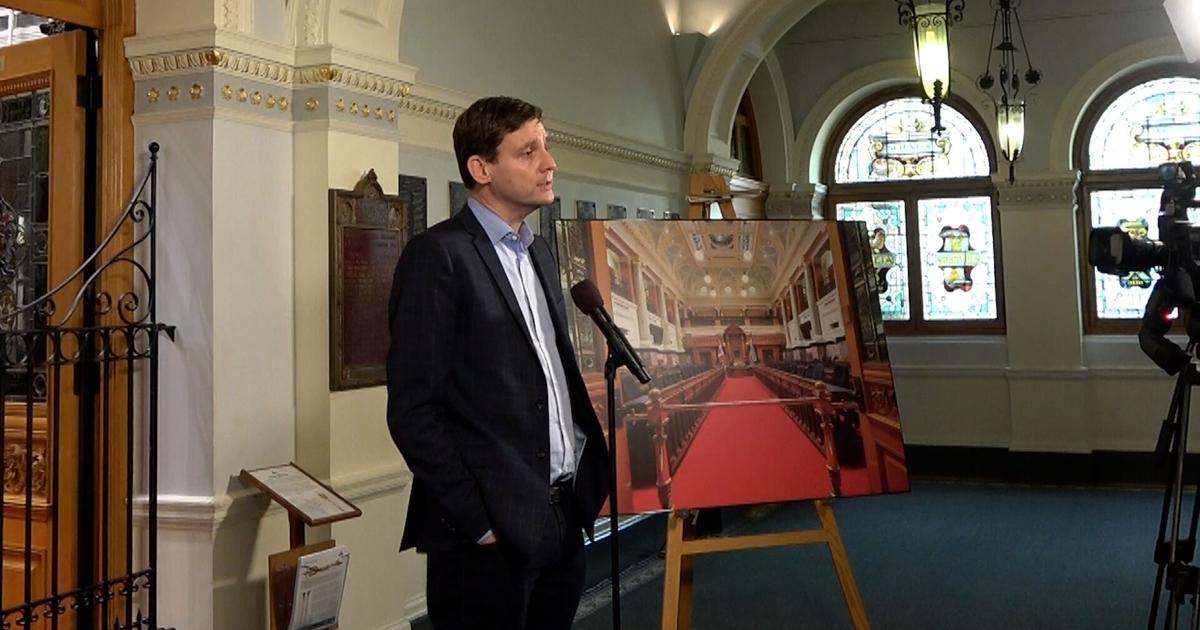News
Canada travel restrictions: What you need to know – CTV News

With the COVID-19 restrictions at the border to remain in place for at least another month, some Canadians may need a primer on what those rules are.
Public Health Agency of Canada announced that several pandemic restrictions will be extended at Canadian airports and land borders, including vaccine mandates, random COVID-19 tests and the mandatory use of the ArriveCan app, until at least June 30.
While few Canadians may still be anxious about travelling, some are ready to take a vacation after more than two years in a pandemic. CTVNews.ca breaks down what rules travellers need to be aware of as they plan their trips prior to jetting off.
PRE-ENTRY TEST NO LONGER REQUIRED
As of April 1, fully vaccinated travellers no longer need to provide a negative pre-entry COVID-19 test result to enter Canada by air, land or water.
Passengers may still be subjected to mandatory, random PCR testing at the airport — in part to monitor for new, emerging COVID-19 variants — though they will not be required to isolate while awaiting their results.
As of April 25, children aged five to 11 who are travelling with a fully vaccinated parent or guardian will no longer be required to complete a COVID-19 test prior to entering Canada, regardless of whether the child is unvaccinated. Children under the age of five won’t be required to complete a pre-entry COVID-19 test either, and are exempt for vaccination requirements.
ARRIVECAN APP
All travellers coming to Canada, regardless of citizenship or vaccination status, still have to use the ArriveCAN app to submit their health information before arriving in Canada. Travellers must submit their information in ArriveCAN within 72 hours before arrival at a port of entry.
Travellers who arrive without completing their ArriveCAN submission may have to test on arrival and on the eighth day of their 14-day quarantine, regardless of their vaccination status. Foreign nationals may be denied entry as well if they have not completed their ArriveCAN submission.
Any travellers who fail to submit their information and proof of vaccination using ArriveCAN could be fined $5,000.
While travellers still have to use the ArriveCAN app, the federal government has dropped its requirement for those entering the country to monitor for and report any COVID-19 symptoms they experience. Those travelling from abroad also won’t be required to keep a list of close contacts and places visited for the first 14 days after their arrival in Canada.
PROOF OF VACCINATION STILL NEEDED
Despite the lifting of pre-entry test requirements, the requirement to be fully vaccinated with a government-approved COVID-19 vaccine in order to board federally-regulated air, rail, and marine transportation remains in effect.
Pre-entry testing requirements have not changed for partially vaccinated or unvaccinated travellers who are currently allowed to travel to Canada.
Unless otherwise exempt, all travellers age 12 or older who do not qualify as fully vaccinated – having received at least two doses of a COVID-19 vaccine accepted for travel or a mix of two vaccines – must continue to provide proof of a negative pre-entry COVID-19 test result.
Accepted pre-entry tests include a health professional-administered negative rapid antigen test taken no more than one day before arriving at a port of entry, or a negative molecular test taken no more than 72 hours before a scheduled flight or crossing at a land border.
Partially vaccinated or unvaccinated travellers may also provide a positive molecular test taken at least 10 days and no more than 180 days before their scheduled flight departure time or their arrival at the land border to enter Canada. Positive antigen test results are not accepted.
The government recommends completing a COVID-19 vaccine series, along with any additional recommended doses in Canada, at least 14 days before travelling internationally. For those who must travel, the government suggests delaying one’s plans until they are fully vaccinated.
MASKING DURING TRAVEL AND AFTER ARRIVAL
Canadian adults and children aged five and older who are fully vaccinated are no longer expected to wear a mask in public spaces for 14 days following their arrival in Canada. However, children aged five to 11 who are either unvaccinated or partially vaccinated must continue to wear masks in public settings, such as school, for 14 days after entering Canada.
All travellers are also still required to wear a mask while travelling on federally-regulated modes of transportation, such as a plane or train, regardless of whether they are vaccinated.
BEFORE YOU GO
Prior to travelling, the government recommends checking the COVID-19 testing and vaccination requirements, as well as other entry requirements, at one’s destination as they may be different from Canada’s rules.
Travellers are also advised by the Canadian government to monitor the COVID-19 situation at their destination in the days before travelling should the status of COVID-19 infections and public health requirements there change.
CRUISE SHIPS
Cruise passengers aged five years or older are required to take an antigen or molecular COVID-19 test in order to board a ship no more than one day before their scheduled departure, but will not need to be tested before getting off the ship.
All other requirements for cruises, including providing proof of vaccination before boarding, remain in place.
The government continues to warn travellers that the virus can spread easily between people in close quarters, such as on cruise ships. The government says the chance of being infected with COVID-19 on cruise ships is still “very high,” even for those who are fully vaccinated.
News
Toronto Sceptres open camp ahead of second PWHL season |

The Toronto Sceptres have opened training camp for the upcoming PWHL season, with a new logo, new colours, new jerseys and a new primary venue in Coca-Cola Coliseum. The team has a lot to look ahead to after a busy off-season and successful inaugural campaign. (Nov. 12, 2024)
News
Major shakeup at Canada Soccer in wake of drone-spying scandal |

After a lengthy independent report on the Summer Olympic drone-spying scandal, Canada Soccer says women’s head coach Bev Priestman, assistant coach Jasmine Mander and analyst Joey Lombardi will not be back with the organization. It found the “practice of conducting surreptitious surveillance of opponents” predated this summer’s Paris Olympics. Former coach John Herdman has yet to give evidence. (Nov. 12, 2024)
News
Eby pays tribute to former B.C. premier John Horgan |

B.C. Premier David Eby says John Horgan was an inspirational leader who guided the province’s New Democrats out of the political wilderness after 16 years in Opposition. Eby says his predecessor as premier, who has died after a third bout with cancer, was known for his compassion for people from all walks of life but also his sharp tongue. (Nov. 12, 2024)
-

 News19 hours ago
News19 hours agoAs Toronto enters its Taylor Swift era, experts say crowd safety depends on planning
-

 News19 hours ago
News19 hours agoCanadanewsmedia news November 12, 2024: Union serves strike notice to Canada Post
-

 News19 hours ago
News19 hours agoFormer CFL commissioner Mark Cohon joins Northern Super League as board chair
-

 News19 hours ago
News19 hours agoWaymo’s robotaxis now open to anyone who wants a driverless ride in Los Angeles
-

 News19 hours ago
News19 hours agoFederal government moves to end port strikes, orders binding arbitration
-

 News19 hours ago
News19 hours agoToronto play ‘The Bidding War’ taps into city’s real estate anxiety
-

 Business19 hours ago
Business19 hours agoTrump campaign promises unlikely to harm entrepreneurship: Shopify CFO
-

 News19 hours ago
News19 hours agoWorld’s largest active volcano Mauna Loa showed telltale warning signs before erupting in 2022






















